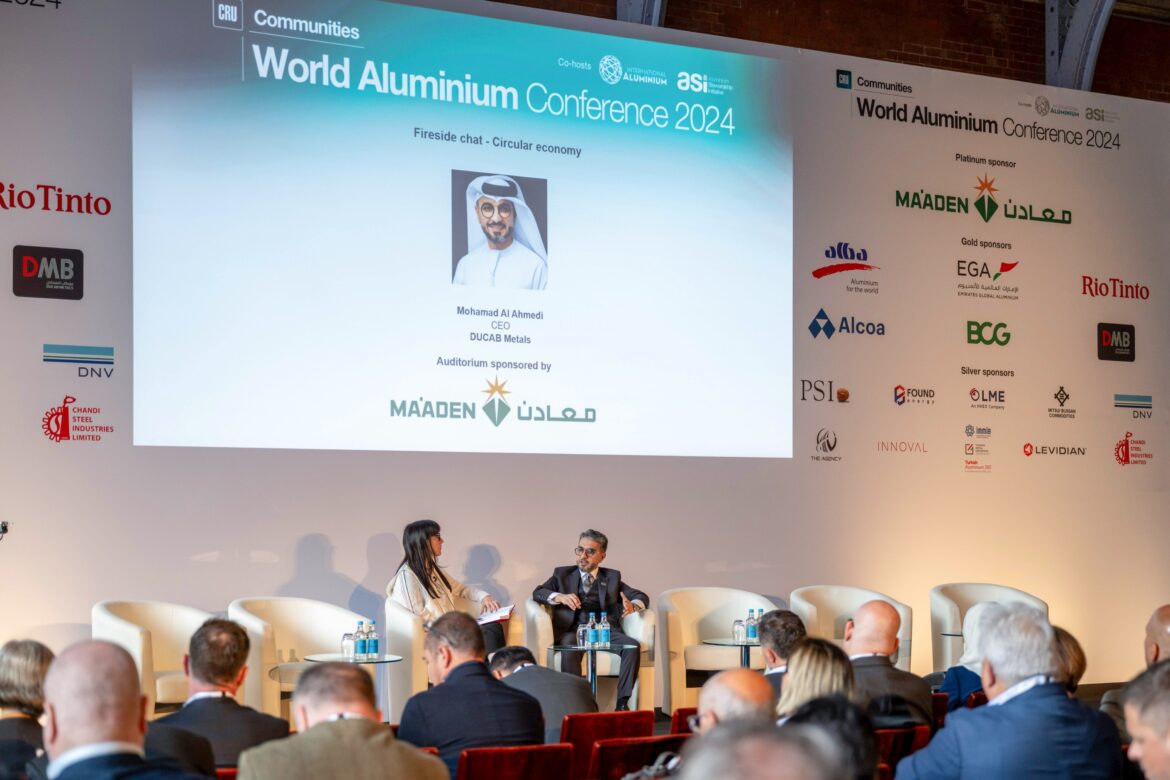Ducab Metals recently participated in the 29th edition of the CRU World Aluminium Conference (CRU), hosted by the International Aluminum Institute (IAI) in collaboration with the Aluminium Stewardship Initiative (ASI) from May 14 to 16.
Ducab Metals’ delegation included Mohamed Al Ahmedi, CEO of Ducab Metals; Meshal Al-Naqbi, Chief Financial Officer; Maitha Shuaib, Executive Director of Corporate Communications at Ducab; and Mohammed Omar, Sales Director.
At the event, Mohamed Al Ahmedi, Chief Executive Officer, Ducab Metals Business (DMB), said that the company’s participation aligns with its environmental strategy and consolidating circular economy principles.
He explained that while more than 100 billion tons of resources enter the economy every year, just 8.6 per cent of this is recycled and used again. In addition to this, resource use has tripled since 1970 and could double again by 2050.
“There are four basic principles of the circular economy: reduce, reuse, recycle, and recover,” said Al Ahmedi, noting that technology is the key to providing sustainable solutions to the circular economy.
Likewise, he highlighted the role AI and machine learning have to play in automating and improving processes to increase efficiency and reduce waste.
Al Ahmedi also underlined the need for collaboration between governments, companies and consumers to accelerate the transition to a circular economy, which increases resilience, reduces environmental impact and promotes job creation.
“The circular economy is expected to create 700,000 jobs in the European Union alone by 2030,” commented Al Ahmedi.
Ducab Metals recently announced the production of its green aluminium rods in compliance with the European Union’s Carbon Border Adjustment Mechanism (CBAM) regulation, with production set to begin this year.
According to the company, the new line will reduce the level of carbon dioxide emitted from aluminium rod manufacturing operations, resulting in 0.5 tonnes of CO2-equivalents per ton for DMB’s product.
Further, it shared that recycling aluminium reduces energy consumption by 95 per cent and greenhouse gas emissions by 97 per cent, compared to extracting new aluminium.



